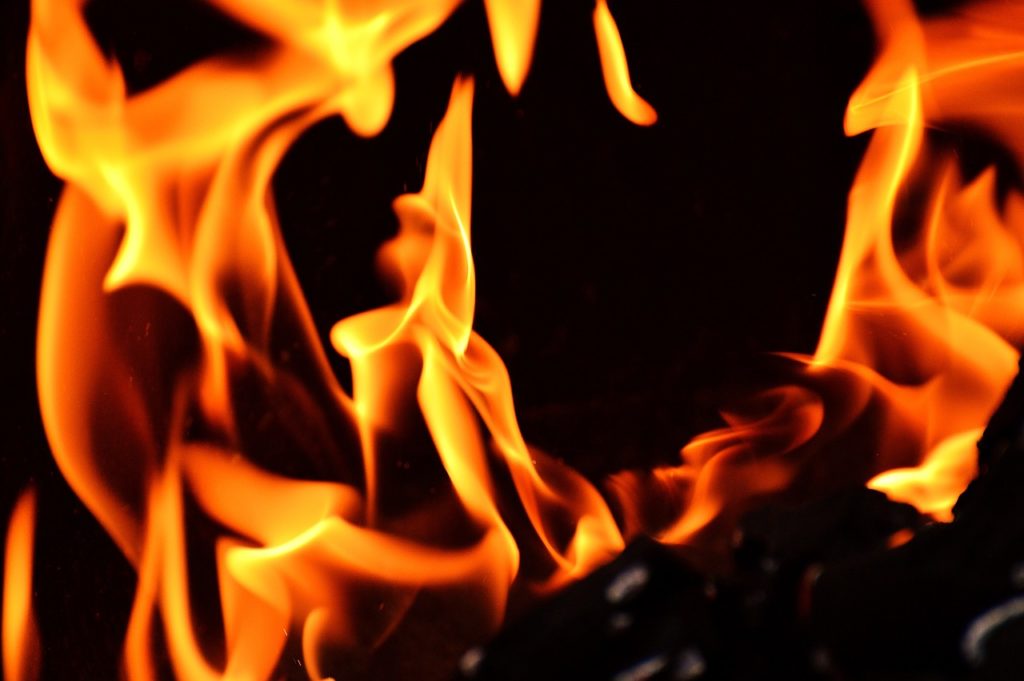
Alexas_Fotos / Pixabay
Gordon Ramsey’s Hell’s Kitchen isn’t really so much a picture of hell, as it is a picture of pagan worship.
But, in a sense, the latter is a picture of the former. The interactions between the contestants in Hell’s Kitchen are seasoned with the bitter tastes of hell.
[click_to_tweet tweet=”The interactions between the contestants in Hell’s Kitchen are seasoned with the bitter tastes of hell. #HellsKitchen #GordonRamsey” quote=”The interactions between the contestants in Hell’s Kitchen are seasoned with the bitter tastes of hell.”]
Hell’s Kitchen: The Community
The god shapes the community of worship. Ramsey lays out how the community is to function on Hell’s Kitchen. He’s very sparing with his blessings and establishes a competition–for his favour. In this competition, there will be one winner. All the others, eventual losers.
Each contestant is pitted against the others. “Friendships” are largely opportunistic. If another contestant goes out today, then I stay. If someone wins, I lose.
In a sporting context, there are always winners and losers. In Hell’s Kitchen, the competition doesn’t stop after the contest is won and lost. It moves into the dorms and the jacuzzi. Ramsey promotes it–“Go back to the dorms and determine which people you want to put forward for elimination.” And we get to watch this agonizing process. Like I said, it’s hellish.
C. S. Lewis writes about the ethos of hell in The Screwtape Letters. In this excerpt, an experienced devil, Screwtape, explains it a novice tempter, his nephew:
The whole philosophy of Hell rests on recognition of the axiom that one thing is not another thing, and, specially, that one self is not another self. My good is my good and your good is yours. What one gains another loses. Even an inanimate object is what it is by excluding all other objects from the space it occupies; if it expands, it does so by thrusting other objects aside or by absorbing them. A self does the same. With beasts the absorption takes the form of eating; for us, it means the sucking of will and freedom out of a weaker self into a stronger. “To be” means “to be in competition”.
In this sense, Hell’s Kitchen is hellish.
There are many contexts in which we find ourselves in hellish circumstances. It’s when we encounter someone who believes everyone is against them and they will use us, and anyone else for their own gain. They use people for financial gain, to feed their ego, for sexual pleasure, or because the need to be in control. They will take, and never give, unless there is something in it for them.
But this doesn’t describe all of our experience with others.
Christianity and Competition
In our daily lives, many of us experience a little heaven now and then
The whole philosophy of Heaven is, logically, opposite as that of Hell.
This philosophy rests on the recognition of the axiom that one thing is part of other things, and, specially, that oneself is another self. My good is your good and your good is mine. What one gains the other also gains.
We often experience the philosophy of heaven in the best moments of our lives.
When we give of ourselves to our spouse, their gain is also our gain. When we sacrifice for the sake of our children; what we give up is eclipsed by what we receive from their joy or flourishing. We give time to colleagues, students, even strangers and receive many times the blessing back, sometimes just in the form of a smile. The math doesn’t work, and this is incomprehensible to the devils like Screwtape and those humans who buy into his logic don’t. They just can’t imagine how it’s possible to can give and get back more back. Happily, most people get it–the math of heaven.
I think Gordon Ramsey gets it. We catch glimpses of it in all of his shows. I don’t think his moments of sacrificial kindness are simply a means to more viewership. Yes, he does it for ratings, but perhaps deep down he does it because heaven feels better than hell.
One such moment was in episode six of this season’s Rookies versus Veterans edition. Chris decided to step out of the competition. He was on the verge of a breakdown. The show is stressful enough, but he had also been involved in a serious accident nine months before coming to the show. Sous Chef Christina and Ramsay caught wind of Chris’ plight. Their response was sympathy and by urged Chris to seek professional help. It’s a small thing, with hardly any sacrifice, but for a moment I believe that Ramsey was acting almost completely in Chris’ best interest.
On Hell’s Kitchen we see quite a bit more hell than heaven. That’s why I stopped watching it. But I never miss an episode of Master Chef.

Leave a Reply